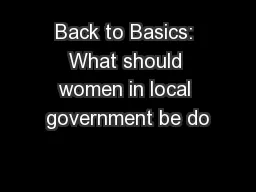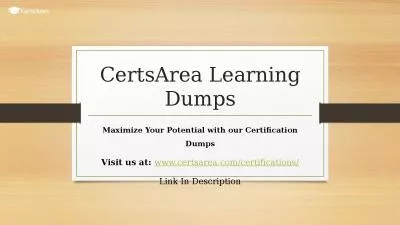PDF-(BOOS)-Bioethics: The Basics
Author : sherilynchapell | Published Date : 2022-08-31
Bioethics The Basics is an introduction to the foundational principles theories and issues in the study of medical and biological ethics Readers are introduced to
Presentation Embed Code
Download Presentation
Download Presentation The PPT/PDF document "(BOOS)-Bioethics: The Basics" is the property of its rightful owner. Permission is granted to download and print the materials on this website for personal, non-commercial use only, and to display it on your personal computer provided you do not modify the materials and that you retain all copyright notices contained in the materials. By downloading content from our website, you accept the terms of this agreement.
(BOOS)-Bioethics: The Basics: Transcript
Bioethics The Basics is an introduction to the foundational principles theories and issues in the study of medical and biological ethics Readers are introduced to bioethics from the ground up before being invited to consider some of the most controversial but important questions facing us today Topics addressed include the range of moral theories underpinning bioethics arguments for the rights and wrongs of abortion euthanasia and animal research health care ethics including the nature of the practitionerpatient relationship public policy ethics and the implications of global and public health 3 parents enhancement incidental findings and nudge approaches in health careThis thoroughly revised second edition provides a concise readable and authoritative introduction for anyone interested in the study of bioethics. Bioethics in the English-speaking Caribbean . - An Overview. By Dr. Derrick Aarons - Physician - Bioethicist. © Dr. Derrick Aarons 2004. Introduction:. The English-speaking Caribbean comprise 18 politically independent as well as British-dependent countries where English is the first language. These are: Antigua & Barbuda, Anguilla, The Bahamas, Barbados, Belize, Bermuda, British Virgin Islands, Cayman Islands, Dominica, Grenada, Guyana, Jamaica, Montserrat, St. Kitts-Nevis, St. Lucia, St. Vincent & the Grenadines, Trinidad & Tobago, and The Turks & Caicos Islands.. Disclaimer. : . While drawing on . CoGTA’s. Back to Basics information, this is NOT an official . CoGTA. presentation and does not purport to portray the only actions required of women in LG. . International Women’s Day. Partnership with Florida Gulf Coast University. Program Background. National program founded in 1992; Collier County program started in 2004. Serves 378 babies in Collier County; over 1,200 per month nationally. Evolution of Bioethics. Dr. Richard Van West-Charles. Evolution of Bioethics. (i) Paradigm. of Traditional Medical Ethics. (ii) Biomedical Ethics. (iii)Public Health Ethics. Domain of Bioethics. Biomedical. Buddhism. Always remember the . aspects of religion. , and the . adherents. !. What is the . ultimate purpose. ? Religions seek to connect adherents to the transcendent (i.e. God, enlightenment, . etc. CH, NHP, R. BIE. Diamond Manager. Vivian O’Neill. Diamond Manager. Natural Health Practitioner for over 23 years. Chartered Herbalist. Registered Bio-Energetics Practitioner. Speaker & Author. La gamme de thé MORPHEE vise toute générations recherchant le sommeil paisible tant désiré et non procuré par tout types de médicaments. Essentiellement composé de feuille de morphine, ce thé vous assurera d’un rétablissement digne d’un voyage sur . Ethics – morals; right or wrong. Should we or shouldn’t we?. Under what circumstances?. Bioethics: Role of the Scientist. Research. Figure it Out. Explain the Unknown. Can it be done?. How can it be done?. In recent years, bioethicists have worked on government commissions, on ethics committees in hospitals and nursing homes, and as bedside consultants. Because ethical knowledge is based on experience within the field rather than on universal theoretical propositions, it is open to criticism for its lack of theoretical foundation. Once in the clinic, however, ethicists noted the extent to which medical practice itself combined the certitudes of science with craft forms of knowledge. In an effort to forge a middle path between pure science and applied medical and ethical knowledge, bioethicists turned to the work of classical philosophy, especially the theme of a practical wisdom that entails a variable knowledge of particulars. In this book contemporary bioethicists and scholars of ancient philosophy explore the import of classical ethics on such pressing bioethical concerns as managed care, euthanasia, suicide, and abortion. Although the contributors write within the limits of their own disciplines, through cross references and counterarguments they engage in fruitful dialogue. NOTE: NO FURTHER DISCOUNT FOR THIS PRINT PRODUCT--OVERSTOCK SALE -- Significantly reduced list price while supplies lastContains a collection of essays exploring human dignity and bioethics, a concept crucial to today\'s discourse in law and ethics in general and in bioethics in particular. This publication gives some examples of how human dignity can be a difficult concept to apply in bioethical controversies, explores some of the complex roots of the modern notion of human dignity, in order to shed light on why its application to bioethics is so problematic, and suggests, tentatively, that a certain conception of human dignity—dignity understood as humanity— has an important role to play in bioethics, both now and especially in the future. Related products:Ethics and Code of Conduct resources collection can be found here: https://bookstore.gpo.gov/catalog/law... The questions of whether there is a shared nature common to all human beings and, if so, what essential qualities define this nature are among the most widely discussed topics in the history of philosophy and remain the subject of perennial interest and controversy. This book offers a metaphysical investigation of the composition of the human essence-that is, with what is a human being identical or what types of parts are necessary for a human being to exist: an immaterial mind, a physical body, a functioning brain, a soul? It also considers the criterion of identity for a human being across time and change-that is, what is required for a human being to continue existing as a person despite undergoing physical and psychological changes over time? Jason Eberl\'s investigation presents and defends a theoretical perspective from the thirteenth-century philosopher and theologian Thomas Aquinas. Advancing beyond descriptive historical analysis, this book places Aquinas\'s account of human nature into direct comparison with several prominent contemporary theories: substance dualism, emergentism, animalism, constitutionalism, four-dimensionalism, and embodied mind theory. There are practical implications of exploring these theories as they inform various conclusions regarding when human beings first come into existence-at conception, during gestation, or after birth-and how we ought to define death for human beings. Finally, each of these viewpoints offers a distinctive rationale as to whether, and if so how, human beings may survive death. This book\'s central argument is that the Thomistic account of human nature includes several desirable features that other theories lack and offers a cohesive portrait of one\'s continued existence from conception through life to death and beyond. Modern scientific and medical advances bring new complexity and urgency to ethical issues in health care and biomedical research. This book applies the American philosophical theory of pragmatism to such bioethics. Critics of pragmatism argue that it lacks a universal moral foundation. Yet it is this very lack of a metaphysical dividing line between facts and values that makes pragmatism such a rigorous and appropriate method for solving problems in bioethics. For pragmatism, ethics is a way of satisfying the complex demands of multiple individuals and groups in a contingent and changing world. Pragmatism also demands careful attention to the ways in which scientific advances change our values and ethics. The essays in this book present different approaches to pragmatism and different ways of applying pragmatism to scientific and medical matters. They use pragmatism to guide thinking about such timely topics as stem cell research, human cloning, genetic testing, human enhancement, and care for the poor and aging. This new edition contains three new chapters, on difficulties with applying pragmatism to law and bioethics, on helping people to die, and on embryonic stem cell research. In recent years, bioethicists have worked on government commissions, on ethics committees in hospitals and nursing homes, and as bedside consultants. Because ethical knowledge is based on experience within the field rather than on universal theoretical propositions, it is open to criticism for its lack of theoretical foundation. Once in the clinic, however, ethicists noted the extent to which medical practice itself combined the certitudes of science with craft forms of knowledge. In an effort to forge a middle path between pure science and applied medical and ethical knowledge, bioethicists turned to the work of classical philosophy, especially the theme of a practical wisdom that entails a variable knowledge of particulars. In this book contemporary bioethicists and scholars of ancient philosophy explore the import of classical ethics on such pressing bioethical concerns as managed care, euthanasia, suicide, and abortion. Although the contributors write within the limits of their own disciplines, through cross references and counterarguments they engage in fruitful dialogue. #Certification #Dumps #Certification_exam_Dumps
Certification Dump: Prove Your Expertise in IT and Software Technologies
Website: www.certsarea.com/certifications/
Certification dumps are collections of questions and answers used to prepare for a certification exam. They are often provided by third-party companies that specialize in exam preparation. Certification dumps are a valuable resource for anyone looking to prepare for a certification exam, as they provide an in-depth overview of the topics and concepts covered on the exam. Additionally, they are often updated with new and relevant information to ensure that the material is as fresh and up-to-date as possible. Certification dumps can save time and money by providing a comprehensive and convenient way to prepare for a certification exam
Download Document
Here is the link to download the presentation.
"(BOOS)-Bioethics: The Basics"The content belongs to its owner. You may download and print it for personal use, without modification, and keep all copyright notices. By downloading, you agree to these terms.
Related Documents














